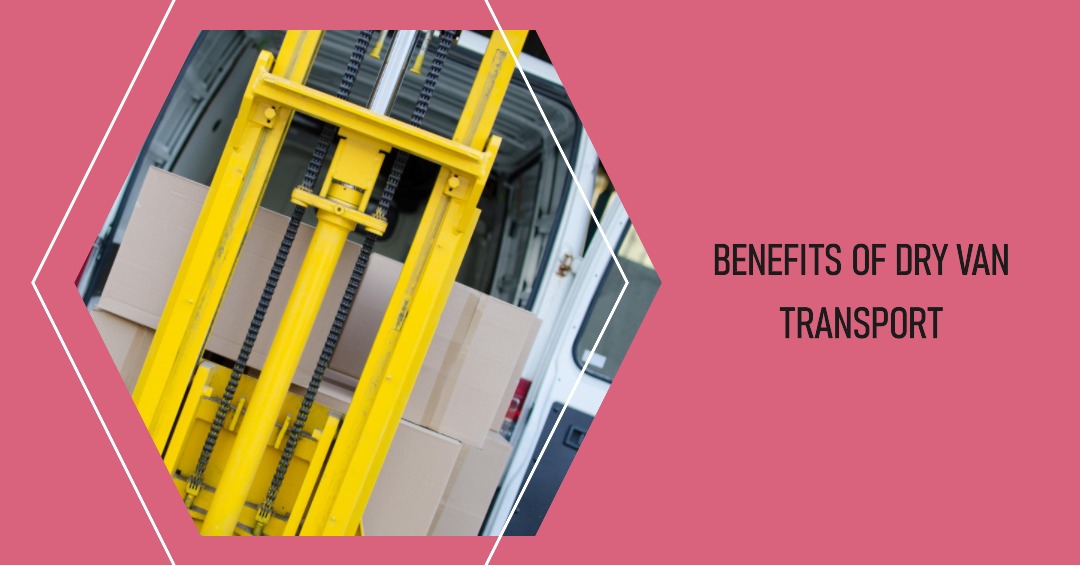A large part of doing business is shipping large loads, whether they’re freight or machinery. As a result, you need to know what kind of transport will work best for the load and destination. In this article, we’ll explain why dry van transport is ideal for businesses that ship large loads and how it can save you time and money.
Cost-Effectiveness
Dry van transport is the most cost-effective mode of moving freight. It’s also the most popular method for companies that ship large quantities of goods across long distances, due to its ability to accommodate more product per load and save money on fuel consumption.
Dry vans are more cost effective than other modes because they’re able to hold more cargo and drive farther per gallon of fuel than any other type of vehicle. For example, a tractor trailer can only carry about 70 tons at a time while a dry van can hold up to 130 tons (or 6 times as much). This means that fewer vehicles need to be used in order for each shipment–and fewer vehicles mean less money spent on gas!
Dry van carriers also offer competitive rates compared with other carriers like railroads or air freight companies because they don’t incur any additional costs associated with loading/unloading cargo onto/off from trains or planes before it reaches its final destination.
Weather Protection
Dry van transport is a great way to protect your cargo from the elements. If you’re transporting sensitive or fragile items, it’s important that they are kept dry and secure. Dry van trailers can be equipped with locks on all doors, so you can rest assured that your belongings will stay safe and secure during transit.
Dry vans also offer protection against dust and dirt, which can cause damage to some types of goods or food products. The enclosed space will keep out any unwanted debris that may have entered through an open door or window on another trailer type such as an open top trailer (OTR).
Security for Your Cargo
Dry van transport is a safe and secure way to transport your cargo. The dry van carrier will ensure that your goods arrive at their destination without damage or theft.
Dry vans are specifically designed to protect the cargo being transported inside them, so you can feel confident knowing that whatever you’re shipping won’t be damaged during transit.
The security measures taken by dry van carriers include:
- Closed-cab tractors equipped with GPS tracking systems and automatic braking systems in case of an accident;
- Secure locking doors on all sides of the trailer (including rear doors), which are opened only when loading or unloading takes place;
- Security cameras installed throughout every truck;
Standardization and Compatibility
The standardization of cargo is another benefit of dry van transport. When you use this method, your goods will be more compatible with other modes of transportation.
This standardization is achieved through containerization–the process by which cargo is loaded into standardized containers that can be moved between different modes of transportation (from ships to trains and trucks). The most common standards are 20-foot, 40-foot and 53-foot shipping containers; however there are also smaller sizes available if necessary. These containers come in two types: open top or closed top (canopy). Open tops allow for easy loading but may not protect your goods from rain or snow as well as closed tops would; however some businesses prefer them because they’re less expensive than their enclosed counterparts!
Cargo Versatility
Dry vans are versatile vehicles that can be used to transport a wide range of cargo. This makes them ideal for use in a variety of industries, including construction, manufacturing and retail.
Dry vans are often used for transporting household goods and furniture because they allow you to load and unload your cargo without special equipment. They’re also great for transporting construction materials like lumber or drywall because these items are easily stacked on top of one another within the van’s enclosed space (and don’t need special handling).
Diverse Transport Options
Dry vans are the most common type of truck, and they can be used to transport a variety of cargo. From food to electronics, dry vans are the go-to vehicle for moving anything from a small business to an international corporation.
Because there are so many different types of dry van trucks available on the market today, it can be hard to know which one is best for your needs. Here are some things you should consider when choosing between them:
- Do you need long-distance or short-distance transportation? If so, how much weight do you have? The answer will determine whether or not it makes sense for you to go with an open top or closed top vehicle.
- Are there any special requirements in terms of loading space (elevated floors) or height restrictions (underpasses)? If so then these factors may influence which kind works best.
- How much time do we have before our next shipment needs to be picked up/delivered? It might seem obvious but sometimes companies rush into making decisions without fully considering all available options first!
Availability and Accessibility
A dry van is the most common type of truck used in the industry, and it has access to all major highways. This means that your cargo can be transported to any location in the country. You don’t need to worry about whether or not a certain carrier will have an issue with transporting your goods from one place to another–with a dry van, you can be sure that everything will go smoothly.
The availability and accessibility of this type of vehicle make it an ideal option for businesses looking to ship their products across state lines or even internationally (if they choose). Dry vans are also cost effective since they’re so common; this means that there’s no shortage of drivers who know how best handle these types of loads!
Choose a Reputable Dry Van Logistics Company
The first step in choosing a dry van logistics company is to make sure they’re reputable. You want to work with a company that has built up solid relationships with its clients. They should have proven experience in the industry, including knowledge of all aspects of dry van transport: from the vehicles themselves to safety standards and regulations related to transporting hazardous materials.
You should also consider whether or not the logistics provider has enough capacity for your needs–that is, if they specialize in moving small loads or large ones (or both), how much volume can they handle? This will help ensure that your shipment gets where it needs to go on time and without any issues along the way!
Another important factor when choosing a dry van logistics company is reliability and trustworthiness: does this company stand by their promises? Have other customers had good experiences working with them? Are there any red flags that indicate poor customer service or unethical business practices taking place behind closed doors?
Conclusion
As you can see, dry van transport is an excellent option for many businesses. It has many benefits, including lower costs and increased flexibility. If you’re looking for a new way to move goods around the country or world, consider dry van shipping as an alternative to other modes of transportation such as railroads or air freight services.







